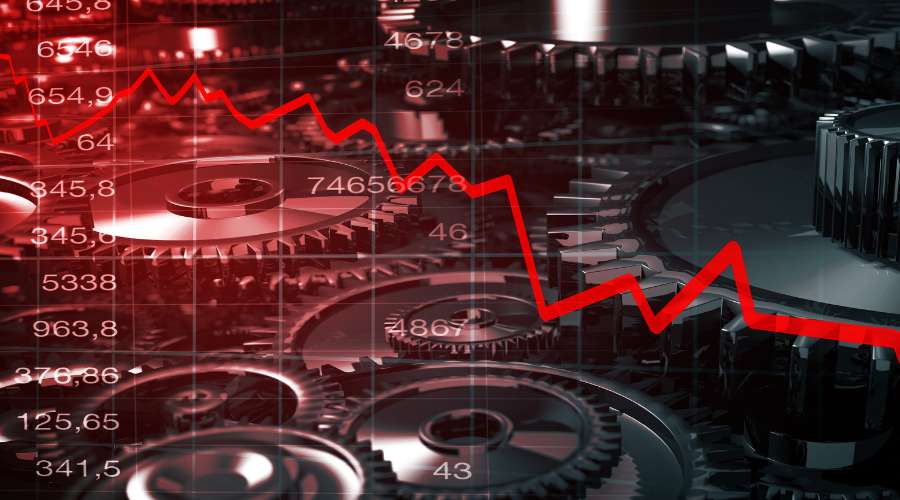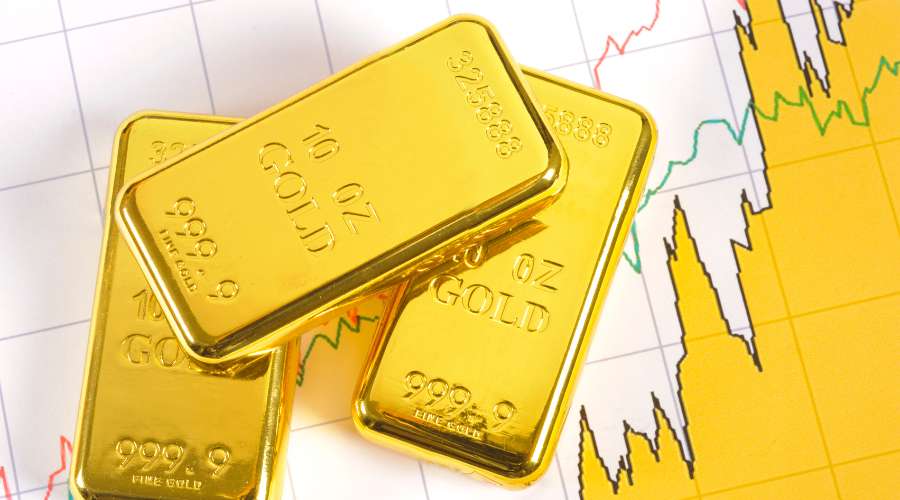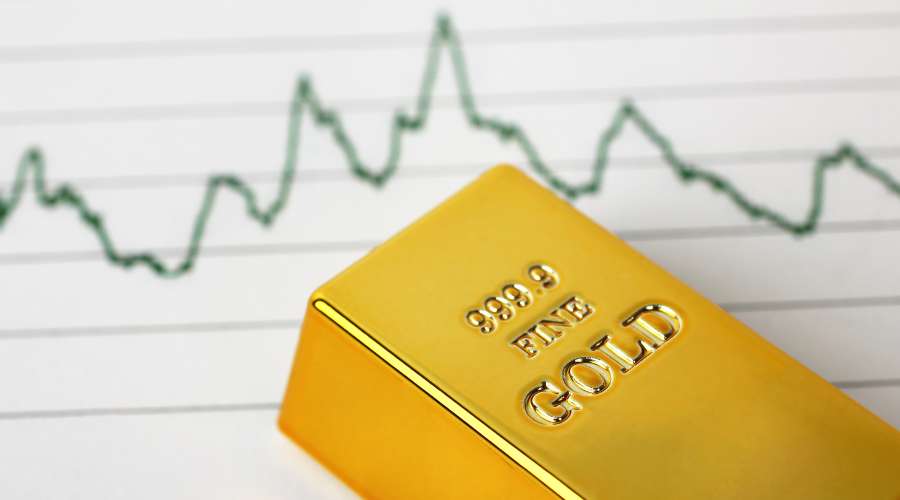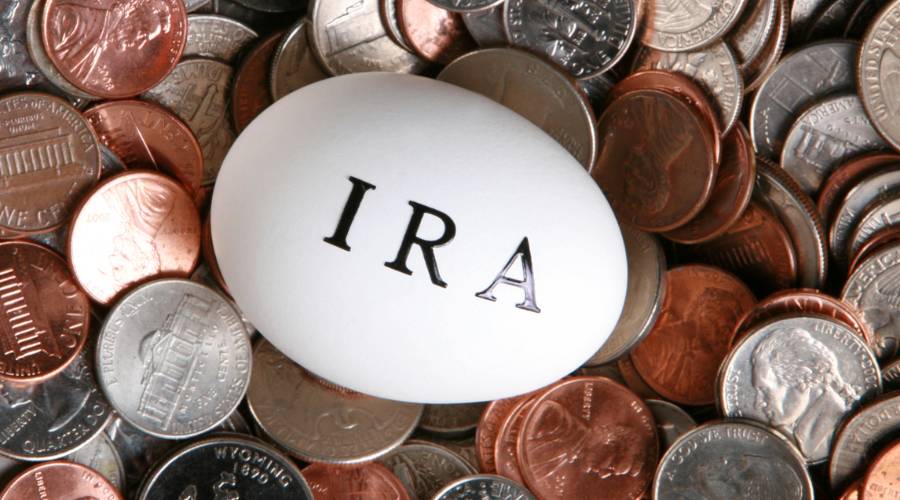Are you looking for ways to invest in gold during a recession? With global economic uncertainty due to a pandemic and other factors, gold is becoming increasingly popular as an investment option. Its appeal lies in its ability to retain its value over time and not suffer the same market volatility as stocks and other investments.
Gold can provide stability and security during a recession, but it's important to understand the basics of gold investing before taking the plunge. This comprehensive guide to investing in gold during a recession provides all the information you need to make an informed decision.
You'll learn about the different types of gold investments, their associated risks and rewards, and how to evaluate gold markets and protect your investment.
If you are interested in investing, make sure to take a look at our highest recommended companies for this year!
>> Click Here For A List Of The 5 Highest Recommended Precious Metals Investment Companies <<
Defining a Recession

A recession is a period of economic decline, typically lasting two or more quarters, during which economic activity slows down or decreases. It is usually characterized by reduced consumer spending, business investment, and employment.
During a recession, people's incomes tend to decline, leading to reduced consumer confidence and spending, causing a further economic decline.
A combination of factors, such as a decline in consumer spending, a decrease in business investment, and an increase in government debt usually causes recessions. Recessions can have long-term economic impacts, including higher unemployment rates, lower wages, and slower economic growth.
In the United States, some of the most notable recessions include the Great Depression in the 1930s, the stagflation of the 1970s, the Dot-com bubble of the early 2000s, and the Great Recession of 2008-2009. The Great Recession had an incredibly profound impact on the global economy and was caused by a combination of high oil prices, a housing bubble, and a financial crisis.
In Europe, the Great Recession was preceded by a period of economic stagnation known as the Lost Decade. This was caused by high unemployment and inflation and was only reversed when the European Union undertook structural reforms and implemented austerity policies.
Other countries have also experienced recessions throughout history. A collapse caused Japan's Lost Decade in the 1990s in the country's real estate and stock markets. In contrast, Argentina's 2001 economic crisis was caused by a severe devaluation of its currency.
Gold's Reaction to Different Economic Conditions

Gold is an interesting asset - it's often seen as a haven in times of economic uncertainty, but it can also be affected by different economic conditions. Let's take a look at how gold reacts to different economic environments.
Gold Performance During Inflation
The relationship between gold and inflation is an interesting one that economists have studied and debated for centuries. Generally speaking, gold performs well during periods of high inflation because it acts as a hedge against inflation. This means that when the rate of inflation increases, the value of gold also rises to balance out the effect of higher prices.
Inflation can have a significant impact on the value of gold. When inflation is high, investors may turn to gold as a haven asset, driving up demand and thus increasing its price. On the other hand, if inflation is low and the economy is doing well, investors may be less likely to invest in gold, thus driving down its price.
The relationship between gold and inflation is not always as straightforward as it seems. For example, if the inflation rate is low but expected to rise, investors may be more likely to purchase gold in anticipation of higher prices.
This can drive up the price of gold while inflation remains low. Similarly, if the inflation rate is high but expected to decrease in the future, investors may opt to sell off their gold holdings, driving down the price of gold even though inflation is high.
Gold Performance During Recession
Generally speaking, gold is seen as a "haven" asset, meaning it retains its value even when the economy is downturned. This makes it an attractive option during times of economic volatility, and as such, gold prices tend to increase during recessions.
Investors look for safe havens during recessions, and gold is reliable. As a result, gold prices usually rise during recessions because investors buy them to protect their wealth. This creates demand for gold, driving up its price.
A decrease in interest rates tends to lead to an increase in gold prices. This is because lower interest rates mean people are less likely to invest in assets that offer higher yields, such as stocks, bonds, and other investments.
Of course, gold prices aren't always guaranteed to rise during recessions. It all depends on the severe Recession and other factors at play. For instance, if a recession causes a global economic crisis, gold prices could remain low due to decreased demand.
Gold Correlation to US Dollar
Generally, gold prices move inversely with the US dollar since gold is priced in US dollars on global markets. When the value of the US dollar is strong, the demand for gold weakens and prices tend to fall. Conversely, when the value of the US dollar is weak, the demand for gold generally increases, pushing prices higher.
This inverse relationship between gold and the US dollar has been in place for many decades and is largely due to the strength of the US economy and its currency. In times of economic uncertainty, investors often seek out gold as a haven asset, as it is seen as a reliable store of value and provides a hedge against inflation. Gold is often seen as a "haven" currency; thus, gold prices tend to rise when the US dollar loses value.
However, this inverse relationship between gold and the US dollar is not always consistent. There are times when the US dollar is weak and gold prices do not respond accordingly. This is often due to other factors, such as geopolitical events or supply and demand dynamics. For example, if a major gold mining operation were to shut down, the supply of gold would decrease and prices could rise even in the face of a weak US dollar.
Why Recession Is a Good Time to Invest in Gold

Investing in gold during a recession can be a great idea, as it usually performs well during financial uncertainty and economic downturns. Here are the top five reasons why investing in gold during a recession is a smart move:
How Do You Invest in Gold During a Recession?

There are several different methods for investing in gold, each with its advantages, so it's important to consider your goals and financial situation before selecting a method.
Physical Gold
By investing in physical gold, you can take advantage of its low correlation to other assets like stocks and bonds, which can help protect you from the impacts of a recession.
Physical gold is available in various forms including coins, bars, and jewelry. Coins offer the greatest security and ease of transport, while bars are generally more cost-effective for larger investments. Jewelry can be an attractive option for investors who want a bit of flair but should not be viewed as an investment vehicle since it is challenging to assess jewelry's true value accurately.
When investing in physical gold, it's important to consider where to store it. An ideal option is to use a secure, insured storage provider such as a bank vault or safety deposit box. Alternatively, keep your gold in a secure home safe or store it with a trusted friend or family member.
In addition to the security of your gold, it is important to investigate the tax implications of any gold investments. In some countries, gold is taxed differently than other investments, so it's important to do your research before making a purchase.
Gold Mining Stocks
Gold mining stocks are investments in companies that mine for gold. Generally, when times are tough, gold miners tend to benefit as investors flock to the safety of gold. Gold miners also benefit from the fact that gold is much cheaper to produce than it is to buy. This makes it an attractive investment when the price of gold is going up.
When investing in gold miners, it's important to consider the company's financial strength and management. Companies with strong balance sheets and experienced management teams are more likely to survive downturns and remain profitable. It's also important to look at their past performance and prospects.
When investing in gold miners, it's also important to diversify your portfolio. Investing in just one gold miner can be risky, so it's a good idea to spread your investments across several gold miners. This can reduce your risk by spreading your investments and exposing you to different parts of the market.
Gold Futures Contracts
Gold futures provide investors with a way to speculate on the price of gold without actually taking physical possession of the metal. By buying and selling gold futures, investors can benefit from price movements and speculate where gold prices will go.
When considering investing in gold futures during a recession, it is important to understand that gold is a volatile commodity. Prices can fluctuate dramatically, so it is important to have a well-thought-out investment strategy and risk management plan in place. It is also important to keep an eye on market news and geopolitical events that could affect gold prices.
Gold Exchange-Traded Funds (ETFs)
These funds are traded just like stocks, allowing you to buy or sell shares of gold anytime during trading hours. Unlike physical gold, ETFs don't require storage, so there's no need to worry about having a secure place to keep it.
ETFs provide diversity by investing in gold-related products, such as gold mining companies, gold derivatives, and even gold bullion. Finally, ETFs provide liquidity since they can be bought and sold on the stock exchange.
When investing in gold ETFs, it's important to remember that gold prices can fluctuate significantly depending on economic conditions. It's important to consider the costs associated with the ETF, including management fees and trading costs.
Gold IRA: The Best Investment for Your Retirement Savings

A gold IRA is a self-directed individual retirement account (IRA) that allows you to invest in physical gold and other precious metals. With a gold IRA, you have more control over your investments than with a traditional IRA, enabling you to diversify your portfolio with a wider range of assets, such as gold coins, bars, and bullion.
This can also help protect your retirement savings from market volatility and inflation. When you open a gold IRA, you can buy, store, and use physical gold, silver, platinum, and palladium with tax advantages.
Many gold IRAs are backed by the US government, giving you peace of mind about your retirement savings. You can select from various custodians and dealers, so you can find one that offers the services and fees that meet your needs.
Three primary types of gold IRA accounts are traditional, Roth and SEP. All three provide an excellent way to diversify your retirement savings with physical gold and other precious metals.
A traditional gold IRA allows you to contribute up to the annual maximum of pre-tax dollars. Your contributions are tax-deferred until you withdraw them in retirement. Plus, any earnings on your investments are tax-free.
A Roth gold IRA allows you to contribute after-tax dollars, and all contributions and earnings are tax-free when you withdraw them in retirement. Finally, a SEP (Simplified Employee Pension) gold IRA is an employer-sponsored plan that allows employers to make tax-deductible contributions to employees.
No matter which type of gold IRA you choose, you'll benefit from the security of owning physical gold and other precious metals. Gold has been a reliable store of value for centuries, and investing in it helps protect your retirement savings from market volatility.
You'll have access to a wide range of gold coins and bars, including popular ones like American Eagle, Canadian Maple Leaf and South African Krugerrand. You can also invest in rarer coins and bars, such as the Austrian Philharmonic coin.
Process for Starting a Gold IRA

To get started with a gold IRA, you'll need to open a self-directed IRA account with an approved financial institution. You'll then need to determine the amount of money you can contribute each year and which types of gold investments you'd like to make.
Once you've decided how much to contribute and what type of gold investments you'd like to make, it's time to choose an approved custodian to manage your account. A custodian is an individual or company that holds your gold investments in the trust, ensuring they are safe and secure. In choosing a custodian, you'll also need to decide which type of gold IRA account you'd like to open.
Once all the paperwork is complete and your account is opened, you will have to fund your account. You can do this by transferring money from another retirement account or making a direct deposit from your bank.
Once the funds have been deposited, it's time to start investing. You can invest in physical gold, such as coins and bars. You can also purchase silver, platinum and palladium bars and coins.
Finally, you'll need to review and monitor your investments. Make sure you're getting the best returns on your investments and staying within the parameters of your risk tolerance. You'll also want to keep track of any taxes or fees associated with your gold investments, so you can adequately plan for them when filing your taxes.
What Time Can You Withdraw from a Gold IRA?
You can withdraw any time, although you may need to meet certain requirements. Generally, you'll need to fill out a form and provide proof of identity and ownership of the gold IRA account. There may also be restrictions on how much you can withdraw at once – typically, the minimum withdrawal amount is $10,000.
When withdrawing funds from a gold IRA, it's important to remember that you may be subject to taxes and penalties. Depending on your situation, you may need to pay taxes on the withdrawn amount.
If you are under 59½, you may be subject to an early withdrawal penalty of 10%. It's best to speak to a financial advisor and tax professional to understand the implications of withdrawing from your gold IRA.
Bottom Line: Is Gold the Safest Investment During Recession?
Gold is the perfect choice if you're looking for a safe and secure investment option during a recession. Not only does gold provide stability and security, but it can increase in value over time, even during tough economic times.
A gold IRA is a great way to diversify your portfolio and protect your retirement savings. With a gold IRA, you can invest in physical gold, such as coins, bars, or jewelry, and have them stored securely. This type of investment is tax-deferred, meaning you don't have to pay taxes on the gains until you withdraw the funds.
Our top-rated precious metal companies make investing in gold easy and convenient. They offer a wide range of products, including coins, bars, jewelry, and other collectible items, so you can find something that fits your budget and needs. Plus, they provide expert advice and guidance to help you make the most informed decisions about your investments.
Don't forget to check out our top recommended companies before investing!
